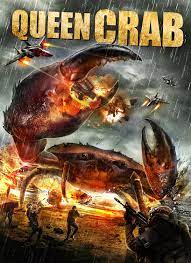This series is set in an alternative United States where witchcraft is a real, genetic trait, with witches possessing special vocal cords that allow them to sing up magical effects such as hurling blasts of force, manipulating the weather, or speaking with the spirits of the dead.
In this reality, the Salem witch trials were still a case of hysterical persecution, but one where the victims actually had a means to fight back. They were resolved by a landmark agreement: witches would be protected by the government, and in exchange, they would supply their magical powers to the military. All witches must serve at least one tour of duty, or live out their lives in secret as "dodgers".
While the agreement ended formal persecution of witches, suspicion and resentment of those with the power is still common among normal humans. Exacerbating this are the actions of "The Spree", a terrorist organisation of witches that commit magical acts of mass murder: the show in fact begins with one such attack, where a witch song causes dozens of people to commit suicide.
Raelle Collar, Abigail Bellweather and Tally Craven are three young witches all newly conscripted to the army, each with varying degrees of enthusiasm for the experience. Compelled to work together as a squad, they must overcome their differences and unlock their full potential as witches. Because as they gradually discover, there are threats in this world that they have not even imagined, and it is far from clear who can be trusted.
This first season of Motherland: Fort Salem is overall a fun bit of urban fantasy, though it is certainly not without its flaws.
Helping the show overcome these flaws are the casting choices, which are mostly very strong. The 'core three' are very likeable and absolutely key to carrying the show past its flaws. The show also demonstrates very diverse casting: we see a much wider variety of body types than are commonly depicted in TV shows, and there are a lot of non-white characters.
This first season of Motherland: Fort Salem is overall a fun bit of urban fantasy, though it is certainly not without its flaws.
Most of these flaws are to do with the writing. While the main narrative is engaging and moves quite well, there are a lot of smaller scale issues. For instance, decisions that should have severe, immediate consequences, frequently don't appear to have any real repercussions at all. Also, for much of the season, everyone but the main trio - and maybe one other person - seems kind of awful. The Spree are mass-murdering terrorists, and the anti-witch activists are violent bigots, but on the other hand the authorities are callous and obsessed with their own power. Hopefully the long term plan is that the main characters demonstrate a better way forward, but that remains to be seen.
The one possible exception to the strong representation is that it does seem a bit odd that Raelle, who is explicitly called out as hailing from the Chippewa 'session', is a blonde white woman with her hair in cornrows. Now to be fair, Taylor Hickson is very good in the role, and I don't think Raelle as a character is intended to be of Native American descent, and in fact I believe there's in-universe some degree of exemption to conscription for Native American witches, but it's not very well explained.
Oddly, the program also depicts witch society as very hetero-normative, although also matriarchal and polyamorous: many female witches have multiple husbands, and sexual relations can enhance their power. However, the show does at least demonstrate some awareness of the isolation this might cause for homosexual witches when it gives two gay characters a chance to gently mock one of the more overtly sexual festivities within Witch culture.
If you like urban fantasy, this is worth checking out thanks to the strong cast. Just don't play a drinking game based on taking a drink every time a shot features "light streaming through windows". Someone on the production team clearly loved this motif, and you'd get alcohol poisoning by about the third episode!







